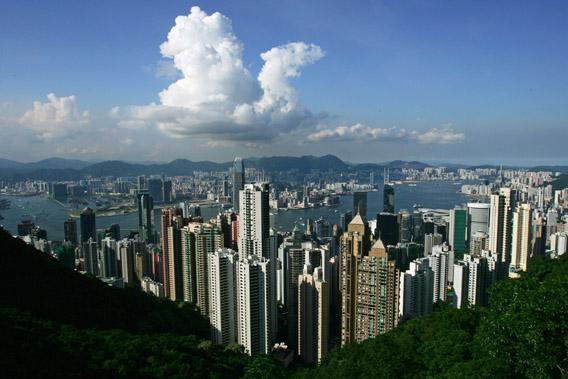Edward Snowden, the 29-year-old technology contractor expert behind last week’s series of leaks about National Security Agency surveillance, has reportedly holed up in a luxury hotel in Hong Kong to avoid extradition, citing the territory’s “spirited commitment to free speech and the right of political dissent.” But Snowden’s decision has been met with some amusement, since Hong Kong has a history of cooperating with the United States on legal matters and is seen as likely to extradite Snowden if the U.S. government requests it. Are there safe places in the world to flee if you want to avoid extradition?
Yes. Consider France. Although France does have an extradition treaty with the United States, it also has a history of reluctance to send people into the U.S. criminal justice system. France has refused to extradite filmmaker Roman Polanski, a French citizen, back to the United States, where he faces charges for the 1977 rape of a 13-year-old girl. More recently, a French court decided not to extradite Michael and Linda Mastro, who were indicted by a federal grand jury on charges of bankruptcy fraud and money laundering, unless American authorities would promise not to imprison them. If France can be a sanctuary for them, perhaps there would be some hope for a whistle-blower (and, according to some, a human rights hero) such as Snowden.
Although it may be tempting to flee to a place that doesn’t have an extradition treaty with the United States, many of those countries would be pretty unappealing to a whistle-blower with a taste for human rights: Somalia, Saudi Arabia, North Korea, and Syria, for example. At the other end of the spectrum, the small European nation of Andorra has great skiing, one of the highest life expectancies in the world, and no extradition treaty. But Andorra, Ukraine, and other seemingly livable places without extradition agreements aren’t a sure bet, either. Even without a formal treaty in place, a country can still choose to repatriate a fugitive trying to hide out within its borders.
Iceland, Venezuela, and Ecuador have been discussed as other options for Snowden should Hong Kong prove inhospitable. Those countries have shown popular support for WikiLeaks founder Julian Assange, who is currently living as a fugitive in Ecuador’s London embassy, where he has been granted diplomatic asylum. They may be similarly welcoming to fellow leaker Snowden. In fact, according to the Guardian, Icelandic information activists have already made inquiries about the possibility of Snowden being given sanctuary in Iceland.
But if Snowden wants to try his luck in Iceland, France, or anywhere else, he’d have to get there first. Interpol will sometimes issue a “red notice” (the closest thing to an international arrest warrant) but keep it sealed so that the wanted person doesn’t know it’s out there. If so, if Snowden tried to travel, he’d be arrested at the airport. So, for now, perhaps Hong Kong is no less secure a refuge for Snowden than any other place.
Got a question about today’s news? Ask the Explainer.
Explainer thanks Edwin Smith, a professor of Law, International Relations, and Political Science at the University of Southern California School of Law and attorney Douglas McNabb, an expert in international extradition law based in D.C. and Houston.
